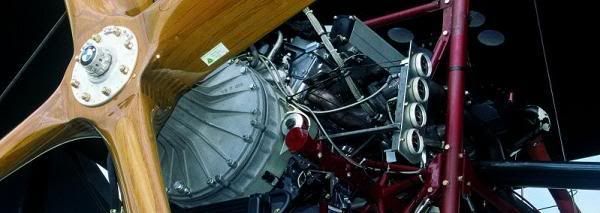dude, some of the most fundamental fathers of science were religious or had faith or some version of what you might still argue against. In his Principia Newton stated, "The most beautiful system of the sun, planets, and comets, could only proceed from the counsel and dominion on an intelligent and powerful Being."
There's plenty of others; Copernicus, Sir Francis Bacon, Kepler, Galileo, Mendel...
and even of Einstein: "although never coming to belief in a personal God, recognized the impossibility of a non-created universe. The Encyclopedia Britannica says of him: "Firmly denying atheism, Einstein expressed a belief in "Spinoza's God who reveals himself in the harmony of what exists." This actually motivated his interest in science, as he once remarked to a young physicist: "I want to know how God created this world, I am not interested in this or that phenomenon, in the spectrum of this or that element. I want to know His thoughts, the rest are details." Einstein's famous epithet on the "uncertainty principle" was "God does not play dice" - and to him this was a real statement about a God in whom he believed. A famous saying of his was "Science without religion is lame, religion without science is blind."
say what you will, but your arguement about someone with faith or a religious person being anti-intellectual is ridiculous.
More up to date, there's Francis Collins, M.D., Ph.D., an American physician-geneticist, noted for his landmark discoveries of disease genes and his leadership, under the Clinton admin, of the Human Genome Project.
He actually once considered himself an atheist but is now an evangelical Christian. I recommed his book to anyone interested. The Language of God: A Scientist Presents Evidence for Belief
As a Christian, I can admit it's hard for me to grasp how someone argues against evolution, although I don't believe in evolution to the extent that some are referring to it. In my studies and faith, I can see why some do not believe in God, but on the same hand I don't understand how those same people cannot believe in a creator. Personally, I believe science and faith can co-exist. Science does not dissprove God, yet science explains a lot and allows us theories on which to continue studying and learning. Having faith is just that, and while I think it's a bit wrong to word it this way, for scientist who support theories, which are in place until something dissproves it, why not take a leap of faith or examine it, and wait to be proven wrong.
Then again that would be useless as faith without action is nothing, or a false faith is not faith at all.
I guess I was somewhat referring to the Murphy's Law application of faith in that last statement, but that would be an inappropriate arguement for faith anyways.
Edit: Furthermore, for those talking shit, these discussions, when kept respectful, honest, and hopefully somewhat factual, are nothing short of greatness. I can respect and appreciate a lot of you guys' thoughts.
There's plenty of others; Copernicus, Sir Francis Bacon, Kepler, Galileo, Mendel...
and even of Einstein: "although never coming to belief in a personal God, recognized the impossibility of a non-created universe. The Encyclopedia Britannica says of him: "Firmly denying atheism, Einstein expressed a belief in "Spinoza's God who reveals himself in the harmony of what exists." This actually motivated his interest in science, as he once remarked to a young physicist: "I want to know how God created this world, I am not interested in this or that phenomenon, in the spectrum of this or that element. I want to know His thoughts, the rest are details." Einstein's famous epithet on the "uncertainty principle" was "God does not play dice" - and to him this was a real statement about a God in whom he believed. A famous saying of his was "Science without religion is lame, religion without science is blind."
say what you will, but your arguement about someone with faith or a religious person being anti-intellectual is ridiculous.
More up to date, there's Francis Collins, M.D., Ph.D., an American physician-geneticist, noted for his landmark discoveries of disease genes and his leadership, under the Clinton admin, of the Human Genome Project.
He actually once considered himself an atheist but is now an evangelical Christian. I recommed his book to anyone interested. The Language of God: A Scientist Presents Evidence for Belief
As a Christian, I can admit it's hard for me to grasp how someone argues against evolution, although I don't believe in evolution to the extent that some are referring to it. In my studies and faith, I can see why some do not believe in God, but on the same hand I don't understand how those same people cannot believe in a creator. Personally, I believe science and faith can co-exist. Science does not dissprove God, yet science explains a lot and allows us theories on which to continue studying and learning. Having faith is just that, and while I think it's a bit wrong to word it this way, for scientist who support theories, which are in place until something dissproves it, why not take a leap of faith or examine it, and wait to be proven wrong.
Then again that would be useless as faith without action is nothing, or a false faith is not faith at all.
I guess I was somewhat referring to the Murphy's Law application of faith in that last statement, but that would be an inappropriate arguement for faith anyways.
Edit: Furthermore, for those talking shit, these discussions, when kept respectful, honest, and hopefully somewhat factual, are nothing short of greatness. I can respect and appreciate a lot of you guys' thoughts.





Comment